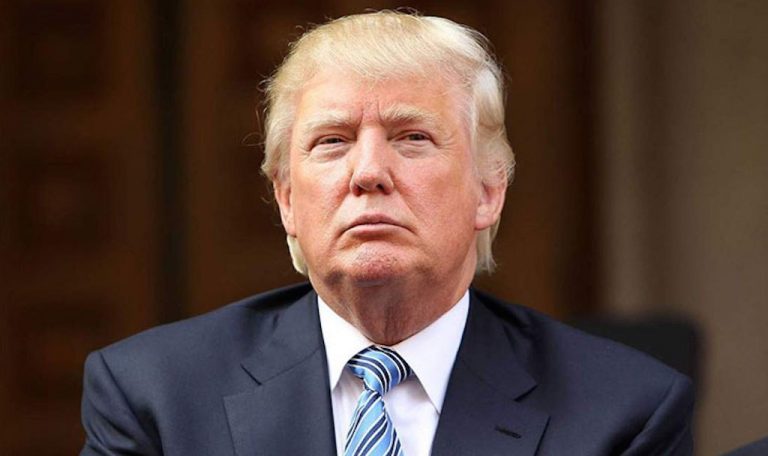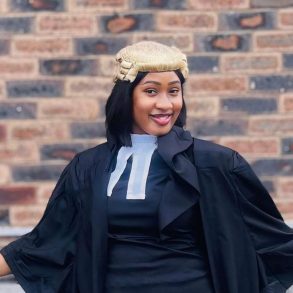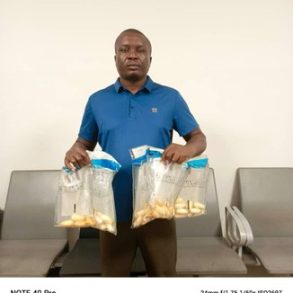A grand jury indicted former US President, Donald Trump, on Tuesday for a raft of alleged crimes in his brazen efforts to overturn the results of the 2020 election — the latest legal and political aftershock stemming from the riot at the US Capitol two and a half years ago.
The four-count, 45-page indictment accuses Trump of three distinct conspiracies, charging that he conspired to defraud the US, conspired to obstruct an official proceeding and conspired against people’s rights.
“Despite having lost, the Defendant was determined to remain in power,” the indictment charges, saying Trump unleashed a blizzard of lies about purported mass voter fraud, and then tried to get state, local, and federal officials to act to change the vote results.
“These claims were false, and the Defendant knew that they were false. In fact, the Defendant was notified repeatedly that his claims were untrue — often by the people on whom he relied for candid advice on important matters, and who were best positioned to know the facts — and he deliberately disregarded the truth,” the indictment states.
The indictment charges six unnamed and so far uncharged co-conspirators in these efforts. Some of the individuals are easily identifiable, such as Rudolph W. Giuliani, Trump’s former lawyer.
The indictment also alleges that on the night of Jan. 6, after Trump supporters stormed the Capitol to try to prevent the formal certification of Joe Biden’s victory, “the White House counsel called the defendant to ask him to withdraw any objections and allow the certification. The defendant refused.”
A spokesman for the former president, Steven Cheung, accused the current administration of trying to interfere with the 2024 election by targeting the current GOP frontrunner, and compared the Biden administration to some of the worst authoritarian regimes in history.
“President Trump has always followed the law and the Constitution, with advice from many highly accomplished attorneys,” Cheung said in a statement. “Three years ago we had strong borders, energy independence, no inflation, and a great economy. Today, we are a nation in decline. President Trump will not be deterred by disgraceful and unprecedented political targeting!”
About 5 p.m., reporters observed a prosecutor with special counsel Jack Smith’s office and the foreperson of a grand jury that has been active for many months examining the events surrounding Jan. 6 deliver the indictment to a magistrate judge in federal court in Washington, D.C.
That grand jury panel gathered Tuesday, and left the courthouse in the afternoon. The indictment is the first known charge or charges to be filed in the special counsel probe of the machinations that led up to the Jan. 6, 2021 riot at the U.S. Capitol, and its aftermath.
U.S. Magistrate Judge Moxila A. Upadhyaya accepted the grand jury return, saying, “I do have one indictment return before me, and I have reviewed the paperwork in connection with this indictment.”
The indictment could mark a major new phase in Smith’s investigation of the former president and his aides and allies, coming nearly two months after Trump and his longtime valet were indicted for allegedly mishandling classified documents and scheming to prevent government officials from retrieving them.
Trump, who has pleaded not guilty in the documents case, denies all wrongdoing related to the 2020 election as well. He announced on social media on July 18 that his lawyers had been told he was a target in the election-focused probe.
Smith was tapped in November to take charge of the both high-profile investigations, after Trump launched his 2024 presidential election campaign and Attorney General Merrick Garland — an appointee of President Biden — concluded that an independent prosecutor should oversee the probes.
A state grand jury in Fulton County, Ga., is also considering whether to file broad charges against Trump and his lawyers, advocates, and aides over their efforts to undo the 2020 election results. A decision on that front is expected in August, although previous plans to announce a charging decision have been delayed. Michigan and Arizona are also investigating aspects of the efforts to block Biden’s victory in their states.
Trump, who is the first former president charged with a crime, is facing a remarkable challenge: as a leading candidate for the 2024 Republican presidential nomination, he is likely to be juggling campaign events with court hearings and criminal trials for months on end.
In addition to the Justice Department and Fulton County probes, he is scheduled for trial in March on New York state charges of falsifying business records in connection with hush-money payments during the 2016 election.
Smith’s elections-related investigation has proceeded along multiple tracks, people familiar with the matter have told The Washington Post, with prosecutors focused on ads and fundraising pitches claiming election fraud as well as plans for “fake electors” who could have swung the election to Trump.
A key element of the investigation is determining to what degree Republican operatives, activists and elected officials — including Trump — understood that their claims of massive voter fraud were false at the time they were making them.
Each track raises tricky questions about where the line should be drawn between political activity, legal advocacy and criminal conspiracy.
A key area of interest for Smith has been the conduct of a handful of lawyers who sought to turn Trump’s defeat into victory by trying to convince state, local, federal and judicial authorities that Biden’s 2020 election win was illegitimate or tainted by fraud.
Investigators have sought to determine to what degree these lawyers — particularly Rudy Giuliani, Jenna Ellis, John Eastman, Kurt Olsen and Kenneth Chesebro, as well as then-Justice Department lawyer Jeffrey Clark — were following specific instructions from Trump or others, and what those instructions were, according to the people familiar with the matter, who like others interviewed spoke on the condition of anonymity to describe an ongoing investigation.
The Post has reported that Giuliani, a personal attorney for Trump who took over his campaign’s legal efforts after the 2020 election, coordinated the fake-elector effort. Ellis helped him urge state legislatures to reject certified Biden results, while Eastman argued to Trump that Vice President Mike Pence could accept alternate slates when certifying the electoral votes on Jan. 6, 2021. Chesebro wrote several memos on the fake-elector strategy. Olsen urged lawsuits to overturn the election results in several states, and Clark pressed Trump’s fraud claims from within the Justice Department.
The Washington Post





